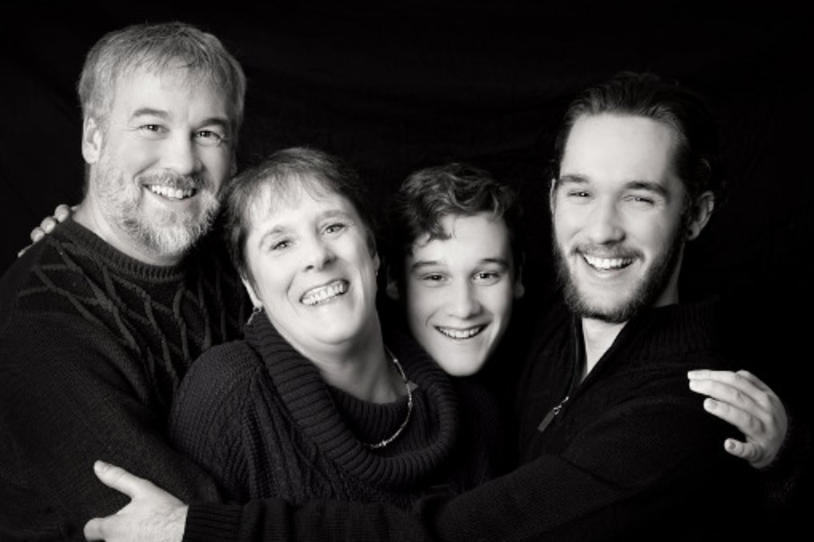
Jackie Hunt Christensen with her husband Paul and sons Bennett and Alex (credit Katrina-Marie Resman)
That’s the question Jackie Hunt Christensen wants to ask you—whether you have Parkinson’s, love someone who does, or treat those with the disease.
Living in Minneapolis with her husband and their two sons, Jackie is the state director for the Parkinson’s Action Network in Minnesota and vice president of the National Parkinson Foundation Minnesota. More than 15 years ago, she was diagnosed with young-onset Parkinson’s, but continued working as an environmental health activist. After she turned 40, she decided to focus more on her own health and family, channeling her passion for activism into the Parkinson’s community. Her first effort to raise awareness about PD was to host a house party for Michael J. Fox’s final episode of “Spin City” in 2002. Since then, she has published two books about living with Parkinson’s—a guide for the newly diagnosed and for those who undergo Deep Brain Stimulation (DBS) surgery.
In anticipation of this October’s World Parkinson Congress (WPC), Jackie developed a survey about the impact of Parkinson’s on relationships and interpersonal communications. From this survey, she will use the data to create a poster to present at the WPC. And she needs your help. She says, “I’ve been thrilled by the number of responses I’ve already received. But I hope to get even more, so I can represent as many experiences as possible.”
Jackie hopes to inspire more discussion around Parkinson’s non-motor symptoms, such as facial masking and issues with speech. She says, “I was first made aware of these symptoms about 18 months after my diagnosis, when my husband asked, ‘Are you mad about something?’ I said, ‘No, why do you ask?’ And he said it’s because I look mad all the time. It wasn’t until I talked to my doctor that I realized this was a common symptom of Parkinson’s.”
After Jackie had DBS, she regained some of her facial expressions. However, her voice remains weak. To help her address this, she asks her family to tell her when they can’t hear her. She jokes, “My younger son is a teenager now. So I have to differentiate when he doesn’t respond to me—is it because he actually can’t hear me, or because he’s simply ignoring me like a teenager?”
Although DBS has significantly improved her quality of life, Jackie worries that some people may initially find her unapproachable, due to her facial masking or “flat” voice. And she is often frustrated by people’s reaction to her halting speech. “They tend to complete my sentences for me. And I hate that.” As a Parkinson’s advocate, she says she sees too many people speaking on behalf of patients, rather than allowing patients to speak for themselves. “That makes living with the disease even more isolating,” she says.
Through her survey and presentation at the WPC, Jackie hopes to help combat this. In particular, she hopes the information she gathers will prompt researchers to look more closely at these lesser known symptoms, which can have a tremendous impact on the lives of patients—and their loved ones.
Share your experiences by taking part in this survey.